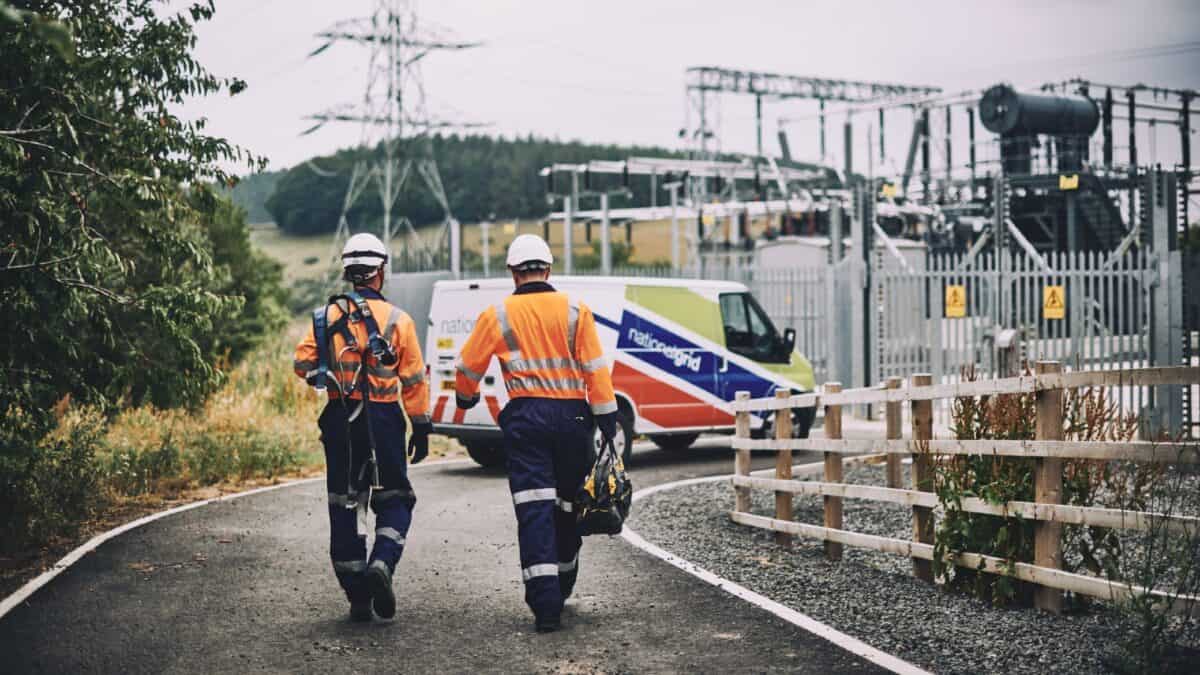
Image source: National Grid plc
National Grid (LSE: NG.) isn’t just a utility company – it’s the backbone of Britain’s energy infrastructure. But for investors eyeing this FTSE 100 stalwart, the burning question is: what’s in store for the National Grid share price over the next half decade? Let’s take a closer look.
A sharp recovery
The shares have rebounded impressively from 52-week lows in June. After a 20% decline in June following disappointing earnings, and news of a £7bn capital raise, investors have seen the shares slowly climb, albeit a long way from a peak in 2022. However, with a market cap of £51bn, enormous customer base, and a juicy 5.46% dividend yield, it’s no wonder this company continues to grab the attention of both growth and income seekers.
So, let’s plug into the factors that could either supercharge or short-circuit National Grid’s share price by 2029.
Enormous expansion
The company is embarking on an ambitious £60bn investment odyssey, aiming to rewire its infrastructure for the clean energy revolution. It’s a bit like upgrading from a unicycle to a car – expensive in the short term, but potentially game-changing for the future.
This colossal spending spree isn’t just about keeping the lights on. Management is betting it will spark 10% annual asset growth, and power up annual earnings per share by 6%-8% from this year for the next five.
But it’s not exactly an easy project to execute. Regulatory storm clouds are always on the horizon. The company walks a tightrope between investing in tomorrow’s grid and keeping today’s energy bills sensible.
And let’s not forget about the £47bn debt on National Grid’s balance sheet. While it’s manageable for now, any wobbles could send investors running for the exits.
Eyes on the future
So, where might National Grid’s share price be when we’re all five years older (and hopefully wiser)? City analysts seem to have a sunny outlook, with an average price target of 1,123p for the next year. The most optimistic among them are even forecasting 1,230p.
A discounted cash flow (DCF) calculation also suggests that the shares are about 17% lower than an estimate of fair value at present. Obviously, these forecasts aren’t guaranteed. With electrical demand expected to skyrocket as electric vehicles and other energy-hungry technology takes off, the future of the sector is anyone’s guess.
With the sector carefully regulated, profits and losses are fairly closely controlled. But as with all companies on the market, any number of complex variables can intervene.
The bottom line
To me, National Grid isn’t like any other utility stock – it’s powering the future of British energy. For investors willing to weather a few potential storms, it could provide both a steady stream of dividend income and the possibility of seriously robust growth over the long term.
I expect the sector to be a lucrative one for long-term investors with a strong stomach, but couldn’t put a number as to where the shares will be by 2029. Instead, I’ll be keeping an eye on the progress of the company’s strategy. I’ll be adding it to my watchlist for now.













